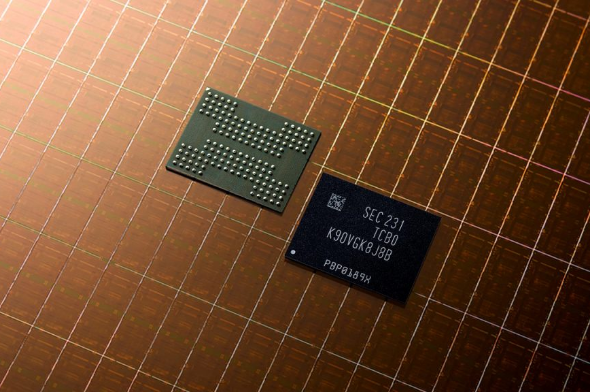Connection to DriversCloud Create a DriversCloud.com account Reset your DriversCloud.com password Account migration
Towards an increase in NAND memory, and therefore SSDs, in smartphones?
It no longer seems a question of "if" or "when", but rather of "how much" NAND flash memory will increase in the coming weeks.
The ubiquity of smartphones, with their ever-increasing memory capacities, the explosion of SSDs, but also the growing needs of many fast-expanding sectors such as artificial intelligence, have boosted demand for flash memory, while manufacturers 1/ can be counted on the fingers of one hand, and 2/ are unable to infinitely expand their production while ensuring the technological progress desired by all players in these multiple markets. When supply increases, but demand cannot keep pace, prices rise almost mechanically.
In the opinion of many observers, this is undoubtedly what awaits us with NAND flash memory chips, whose prices already seem to have been rising since mid-summer. However, if Wccftech is to be believed, things have only just begun. The site explains that one of the giants of the sector - Samsung - has started to raise the price of its NAND wafers (the large wafers from which chips are cut and then individually packaged). The problem is that, while these same observers were anticipating an increase of around 10%, they are now talking about a rise of around 20%.
Obviously, if one of the world's leading NAND manufacturers doubles the increase initially estimated by observers, the market for many components and devices is likely to be turned upside down. Although no data has been clearly verified, it is now estimated that SSDs could increase by 8 to 13% in the coming weeks, while in the smartphone world, the increase could be more in the order of 10 to 15%. But let's not get ahead of ourselves. For the time being, the increase in NAND chips is Samsung's alone. Its main competitors (SK Hynix, Micron) may follow suit, but nothing is certain at the moment. What's more, there's nothing to say that the increase in wafer prices will actually lead to a net increase in the price of the resulting components: remember that this isn't the first time that Samsung and its competitors have tried to influence prices, but previous attempts have not all been successful. To be continued.






